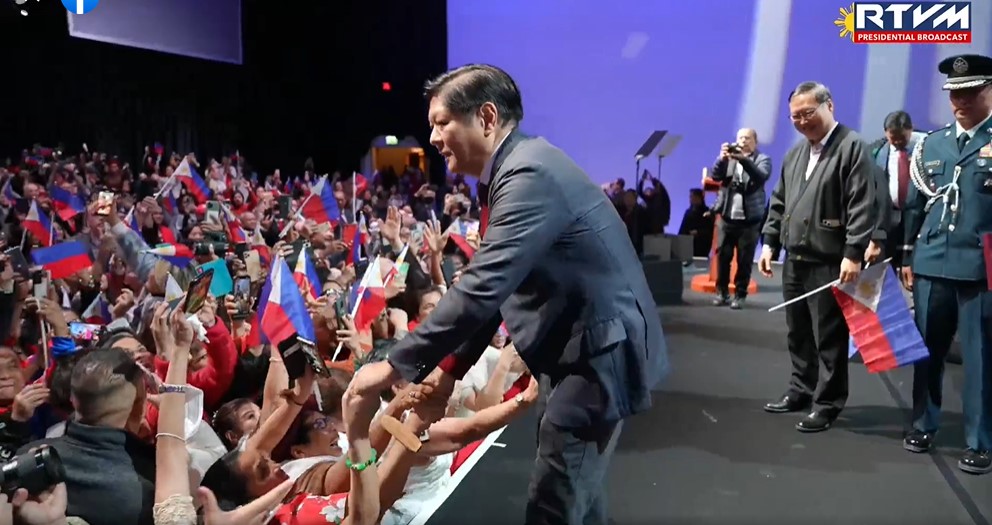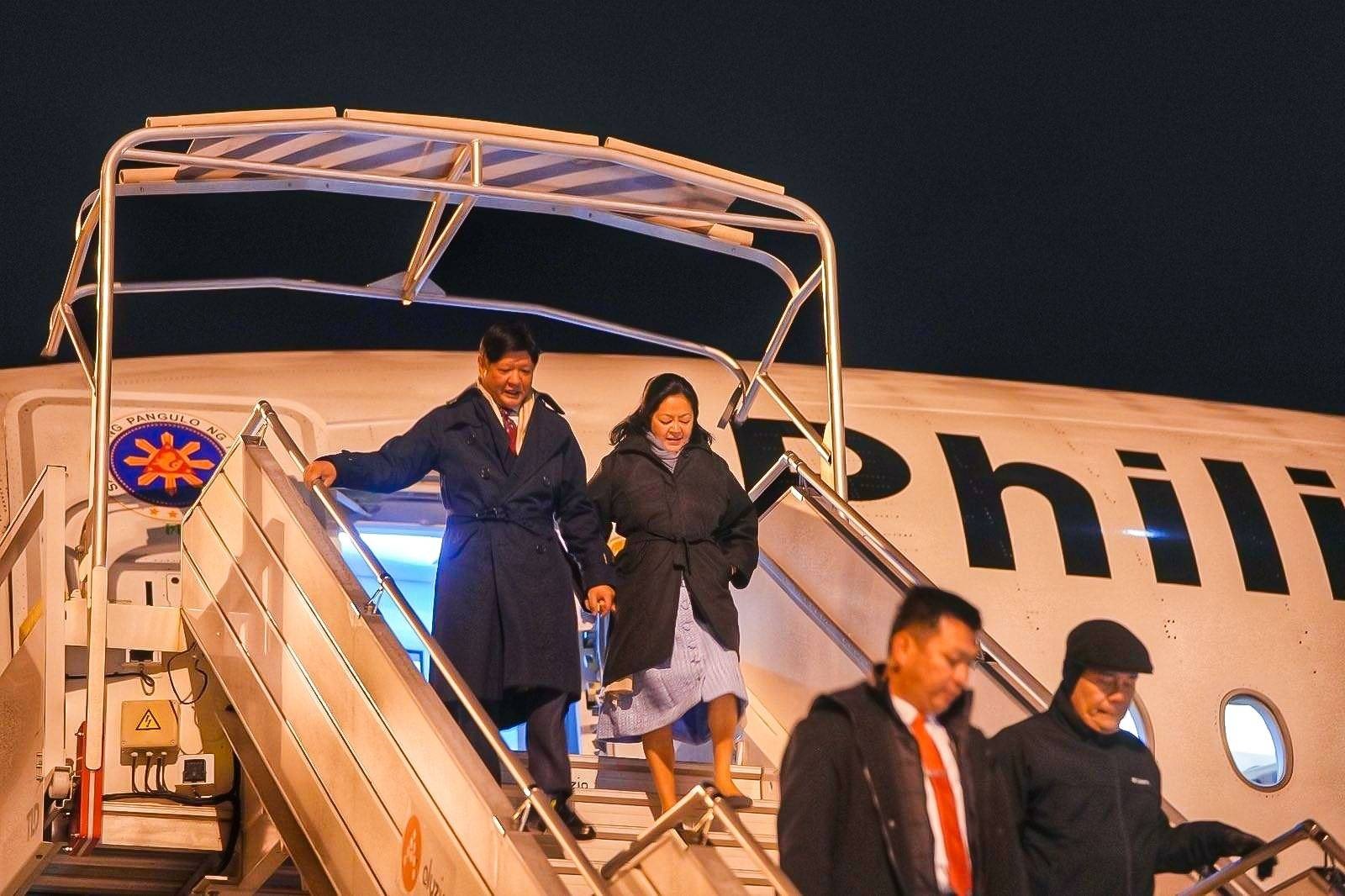Thank you very much. Please excuse my voice. Winter is not suitable to Filipinos. [laughter]
Your Excellencies, Your Honors, distinguished guests, ladies and gentlemen, the business representatives from the two blocs, ASEAN and EU, good afternoon.At the outset, allow me to congratulate the EU-ASEAN Business Council for the success of the 10th ASEAN-EU Business Summit. The whole-day event that we have just held has indeed provided a platform for the much-needed dialogue between EU and ASEAN, after the re-opening of borders due to the COVID-19 pandemic.
The ASEAN-EU Business Council has had a pivotal role in advancing ASEAN’s regional economic integration and post-pandemic economic recovery, through its various initiatives and valuable recommendations, which has been very useful in terms of prioritizing areas and initiatives for ASEAN’s regional economic integration. ASEAN’s regional economic integration has been assisted by this Business Council through the [ASEAN-EU Trade] and Investment Work Programme, we hope to continue this momentum for [2023] and forward.
Building on the theme “Deepening EU–ASEAN Trade: Sustainable Development for All”, the discussions undertaken during the day will not only bring new impetus for both sides to bolster a sustainable trade and investment while opening ways to fast track the implementation of the EU’s Indo-Pacific Strategy.
It is important that our governments continue to collaborate with the private sector, especially now that the ASEAN Member States are in a post-pandemic economic recovery [period] and are facing new challenges brought about by recent geopolitical tensions. It is noteworthy to extend our appreciation to the ASEAN-EU Business Council for its continued support and engagement with ASEAN, from the sectoral bodies up to the Leaders forum and at that level.
ASEAN has increased its presence in the global stage through the efforts on regional economic integration and supply chain resilience.
The entry into force of the Regional Comprehensive Economic Partnership or RCEP , the ongoing review of existing trade agreements, ASEAN’s initiatives to facilitate trade of essential goods demonstrates the region’s push to maintain an open, free, and fair trade. Moreover, with the participation of ASEAN Members in mega trade deals such as RCEP and the Comprehensive and Progressive Agreement for Trans-Pacific Partnership (CPTPP), ASEAN is well positioned to accelerate intra-regional trade and profit.
ASEAN member countries continue to recognize the historical importance of the EU as a trade and investment partner to ASEAN.
Thus, while the ASEAN-EU FTA remains a common long-term objective, economic cooperation initiatives will be prioritized on areas of mutual interest in order to bridge the gap and realize this long-term objective.
ASEAN will continue to dialogue with the EU on ongoing economic competitiveness and competition initiatives. At the 18th ASEAN Economic Ministers – EU Trade Commissioner Consultations (18th AEM-EU Consultations) that were held last September 2022, the Ministers and the representative from the EU, endorsed the ASEAN-EU Trade and Investment Work Programme 2022-2023. The ASEAN-EU Trade and Investment Work Programme of 2022-2023 will provide the ASEAN and EU with a framework with which will serve — that will serve as a platform to enhance economic cooperation in addressing new emerging challenges and seeing new opportunities for trade and investment amongst Member States and Countries.
On digital technologies, ASEAN recognized the need for cohesive strategy for ASEAN to build a resilient foundation for the region’s growing digital economy towards a leading digital economy. Negotiations are on-going on the Bandar Seri Begawan Roadmap (BSBR) which is ASEAN Digital Transformation Agenda to Accelerate ASEAN’s Economic Recovery and Digital Economy Integration. The Roadmap lays out the immediate and short- to medium-term plans that ASEAN can take up to transform the ASEAN region into a leading digital economy.
In total, there are 10 Measures made up by 26 Action Items under the BSBR which culminates in the commencement of negotiations for the ASEAN Digital Economy Framework Agreement (DEFA).
On circular economy, the ASEAN Economic Council Meeting adopted the Framework for Circular Economy in October 2021 to provide a structured pathway for ASEAN in transitioning towards a low carbon circular economy. For the first phase, the CE Implementation Plan was adopted by the ASEAN Economic Community Council during the 21st Meeting on 9-10 November 2022 in Phnom Penh.
Finally, the ASEAN-EU Joint Ministerial Statement on Connectivity 2020 was issued by the Foreign Ministers of ASEAN and EU, as well as the High Representative of the Union for Foreign Affairs and Security Policy and Vice President of the European Commission at the 23rd ASEAN-EU Ministerial Meeting last December 2020. The initiative affirms the commitment between ASEAN and the EU to further boost connectivity through the implementation of key strategies such as the EU Strategy Connecting Europe and Asia and the Master Plan on ASEAN Connectivity (MPAC) 2025, with specific focus on the following areas: sustainable infrastructure, digital innovation, seamless logistics, regulatory excellence, and people mobility.
Let us continue to strengthen trade and investment endeavours between the EU and ASEAN, with the end in view of enhancing economic integration between the two blocs.
Thank you once again, for everyone for a fruitful participation in the Business Summit and I look forward to when an ASEAN member will be hosting the same next year. And thank you for putting up with this very strange, squeaky voice. Thank you.
— END —
Watch here: 10th ASEAN-EU Business Summit
Location: Sofitel Brussels Europe, Brussels, Belgium




